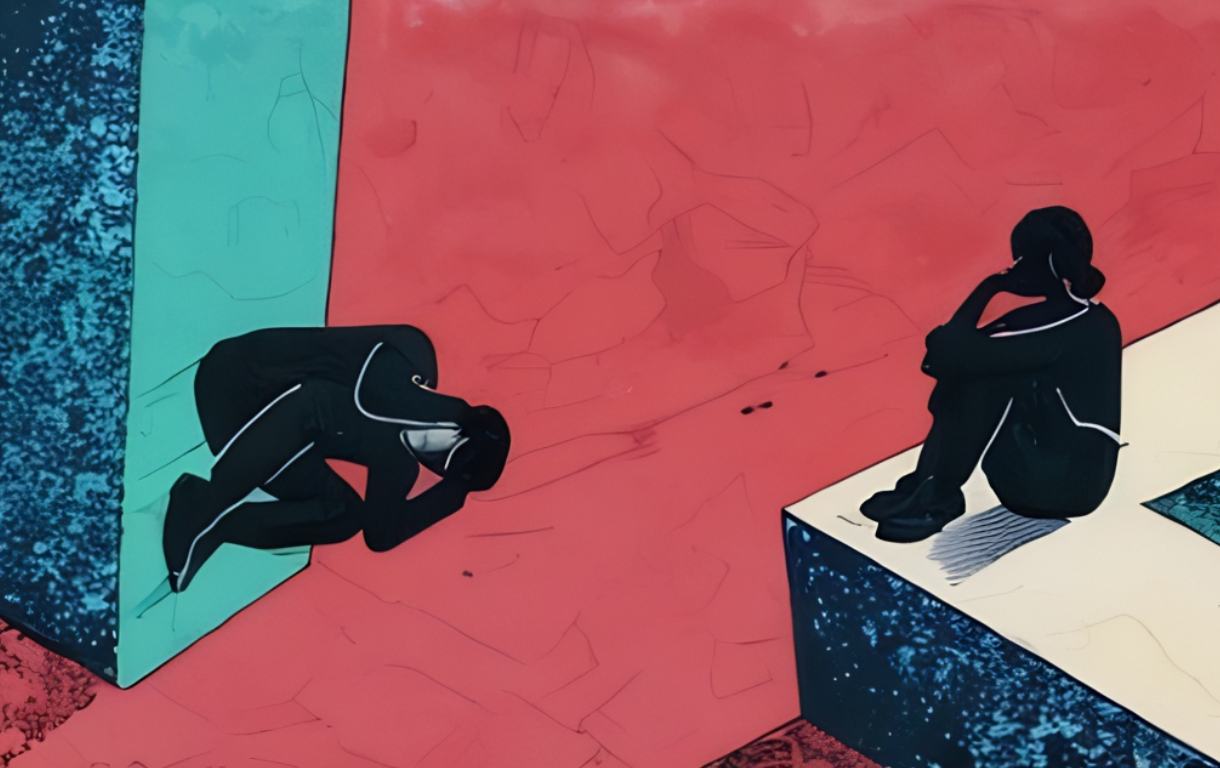Breaking the binary narrative of Awami League isn’t enough…we must understand it first to avoid becoming a victim of it

In Bangladesh’s political discourse, it has become fashionable for activists to proclaim: “We reject the Awami League’s binary politics.”
But most who repeat this mantra fail to understand the very mechanics of the binary they claim to oppose–and in their ignorance, they end up reinforcing it.
The Awami League has long relied on a simplified political dualism to dominate national narratives. On one side: the enlightened, progressive camp–those who supposedly embody “Bengali culture,” adore Rabindrasangeet, and defend secularism, minority rights, and feminism.
On the other: the unredeemable opposition–cast as Razakars, religious extremists, enemies of culture, and threats to national harmony. In this formulation, the Awami League appointed itself as the last bulwark between civilization and chaos.
At one point it became more of an imposed moral theater than a political one–one that allows the party to justify authoritarianism under the guise of national salvation. Its own leaders, such as Obaidul Quader, posture as bearers of a sacred burden–tasked with protecting minorities and women from a supposedly feral opposition.
The price for this noble service? A license to loot, to rule unchallenged, and to bend the nation’s institutions to their will.
But here’s the irony: the Awami League itself has shattered the very binary it constructed. Not its critics. Not the opposition. The ruling party’s own contradictions–laid bare over 16 years of uninterrupted power–have exposed the hollowness of its moral narrative.
They connected every village with smartphones, Wi-Fi, and social media. But with every viral video of police abuse, every report of corruption, every rape or land-grab by party members, the gap between what they preach and what they practice widened into a chasm.
They claimed to be defenders of women–while their digital operatives waged coordinated harassment campaigns against female critics. They promised to protect minorities–while party-linked actors encroached on minority lands and incited communal violence.
They held up nationalism as a virtue–yet quietly tethered the nation’s sovereignty to the geopolitical interests of India. They labeled their enemies as Razakars–then married into their families.
In the end, the binary didn’t collapse from resistance. It collapsed from within–crushed under the weight of the party’s own hypocrisy.

The case for rejecting
binary politics
So yes, reject binary politics.
But first understand who built it, who sustained it, and who–unwittingly–dismantled it. The true fact is that Awami League’s greatest undoing wasn’t essentially the opposition, it was its own unmasking.
Outside the fortress of the Awami League, their binary worldview had been systematically dismantled.
First came the exposure. Hypocrisy, once a whispered accusation, became an undeniable fact. The party’s claims to moral high ground were undercut time and again by its actions. This unraveling was propelled by diverse groups who refused to be bullied or bought off.
Some activists fixated relentlessly on the widening gulf between Awami League rhetoric and reality. Others championed liberal civic values while remaining anchored in their Muslim identity–a direct affront to the League’s trope that only their brand of secularism could accommodate progress.
Still others, who genuinely cared about human rights, minority safety, and the sanctity of the Liberation War’s legacy, rejected the Awami League’s overtures, resisted its threats, and refused to lend their legitimacy to a regime that thrived on cultural gatekeeping.
They were thinkers and citizens whose integrity outlasted 16 years of carrots and sticks. During the July uprising, it was this loose coalition–secular, liberal, yet defiantly independent–that delivered perhaps the clearest intellectual rebuke to the Awami League’s dehumanizing politics.
They rejected the lazy, dangerous conflation of dissent with militancy and reclaimed the right to critique without being labeled a traitor.
But the story doesn’t end with the fall. It evolves.
In the aftermath of the Awami League’s waning grip, the binary has morphed. The party’s final sleight of hand is to suggest that their departure signals the end of civilization itself.
“You’ll see, kid, once we’re gone,” is the new refrain– a patronizing prophecy that without them, no one will defend minorities, women, or civic freedoms.
It’s a desperate fiction: that progress in Bangladesh was ever a proprietary asset of the Awami League. That liberalism cannot survive without their cynical stewardship. That without them, the country will plunge into theocratic darkness.
It’s a myth crafted more out of guilt than truth — a last-ditch emotional extortion meant to leave citizens feeling complicit in their downfall.
But if anything, the past decade has proven that moral courage and principled politics exist despite the Awami League, not because of it.

Why resisting binary is
important
The real challenge now is to prevent this vacuum from being filled by yet another binary–one that nostalgically reimagines the League as a flawed savior rather than a spent force.
The fight ahead is against the seductive lie that authoritarianism was ever the price of progress.
The politics that truly opposes the Awami League’s binary is not just anti-Awami in posture–it is liberal in principle. It is a politics that defends civil liberties, minority rights, and gender equality while rejecting the Awami League’s moral monopoly over those causes.
This stands in contrast to the model that emerged during the Awami League’s reign: liberal dissenters who critiqued the party from within a shared value framework. What we’re seeing now is its inverse–a principled liberal stance emerging from an anti-Awami position, unshackled from the assumption that progressive ideals must be routed through the League.
And it is precisely the intellectuals and activists who held their ground for sixteen years–rejecting authoritarianism, exposing hypocrisy, and advocating for marginalized communities–who now carry forward a politics that transcends the binary.
They are proving, by action not rhetoric, that civil liberties do not belong to the Awami League. They belong to all of us–and they must be defended regardless of which regime is in power.
But there is another camp. A subtler, more insidious one.
These are the cynics who, in their eagerness to disassociate from anything "Awami," now treat women’s rights, minority protections, and the legacy of the Liberation War as tainted causes–refusing to speak on these issues for fear of being seen as sympathetic to the League.
Because when you abandon these causes, you do not weaken the Awami binary–you reinforce it. You validate the party’s claim that only they can speak for the persecuted, only they can defend progress, and only they can uphold liberal ideals.
Worse, when you pair this silence with cozying up to far-right actors, you don't break the binary–you become its other half.
To loudly proclaim the death of Awami politics while enabling the very forces it claimed to guard against is delusional. And delusion, dressed up as political sophistication, is still stupidity.
That lesson is urgent. And everyone should take note.
—
Mikail Hossain is a writer and analyst

